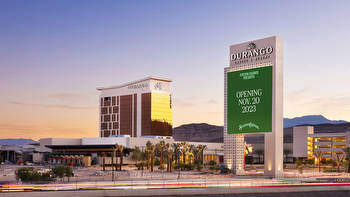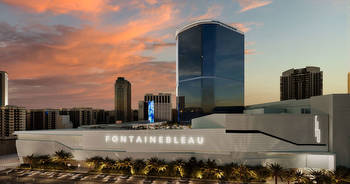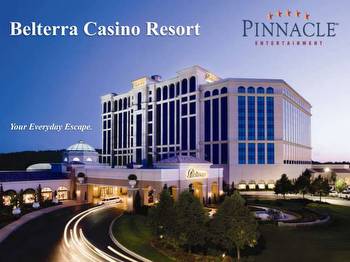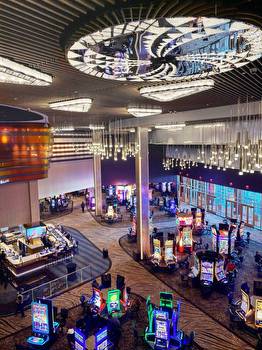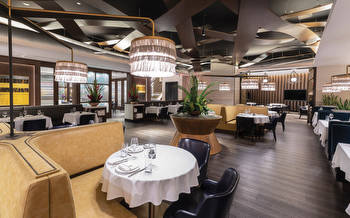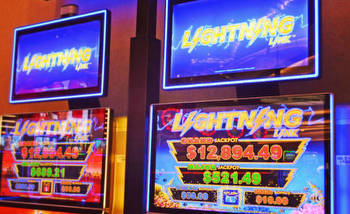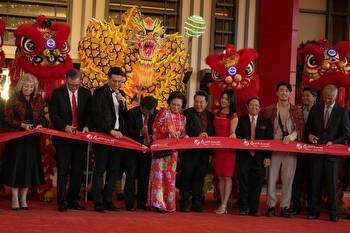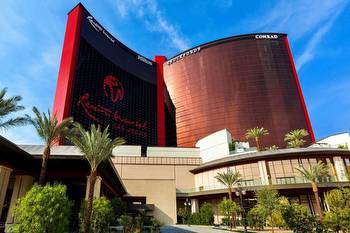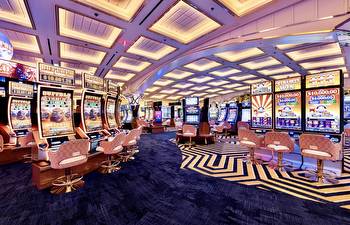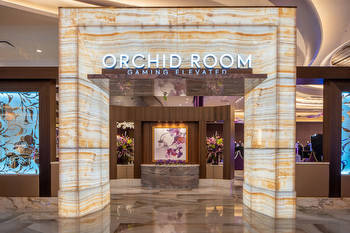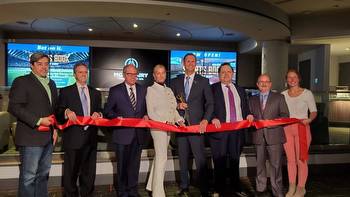Casino VIPs Receive Personal Approach with RFID
Scarlet Pearl Casino Resort is offering special treatment to its most dedicated players and guests when they hold their RFID-enabled cards near readers at its new VIP Lounge and parking areas.
Aug 11, 2021The Scarlet Pearl Casino Resort is employing technology to bring back what it sees as the best of casino amenities with its VIP Lounge. The resort has deployed an RFID-enabled card system to recognize its most loyal players as part of an $8 million renovation that includes the gaming floor and the lounge for guests who have earned VIP privileges. The RFID solution consists of passive RFID tags embedded in membership cards, as well as readers installed at the lounge and parking areas. The RFID read points may expand over time.
The South Mississippi resort and casino, the newest one on the Gulf Coast, is relatively new at only five and a half years old. It is one of about 10 casinos in the area, along with others in New Orleans. At the time of its opening, says Ben Koff, Scarlet Pearl Casino Resort's VP of marketing, "Many thought we were destined to fail" as yet another property in a somewhat crowded market.
Since then, however, the casino's business has been booming, Koff reports. "We've really established ourselves as a boutique property," he states. The resort's focus, he says, has been on providing the kind of amenities that casinos have traditionally offered high-roller guests whose loyalty ensures a casino's long-term success. "Our VIP players are some of our most important sources."
The resort's owners are players themselves, Koff notes, so they understand the need for a positive player experience. In recent years, he says, many casinos have moved away from the experiential factor of gambling, such as personalized or VIP services, and instead have focused more on revenue. Ultimately, Koff says, casinos all feature the same games, machines and restaurants. "What's different is how you provide the experience," he explains. "Anyone can gamble anywhere. The question is how are you treated—what experience are you having?"
During the past year, the company has budgeted $8 million to retool its site, focusing on the casino floor to improve guest services, with $4 million of that budget dedicated to a new VIP lounge in which services are more personal. The resort sought to create a system in which players would feel recognized when they arrived, without having to swipe cards or introduce themselves.
Since the RFID system was launched with the new lounge in June, the cards have been distributed to some of the casino's top gamers. Each credit-card-sized card is printed with an individual's name and ID number and comes with a magstripe for use in gaming machines. It also comes with an RFID chip that responds to interrogation by the resort's readers. The unique ID number encoded on the chip is linked to the card's owner. The company declines to share the frequency of the RFID technology or the company providing the readers.
The system has several purposes, starting with gaining entrance to the parking and lounge. "We look at it as a technology for access," Koff says. When VIP guests arrive at the parking area, they wave their loyalty card within about 6 inches of the RFID reader. That spares them the effort of inserting a card to be swiped for identification. "You don't realize how much people hate swiping," he states, until they have an RFID chip card.
Readers are also deployed at the entrance to the new VIP lounge, where users wave their cards over the device, causing the gilded wood doors to open automatically. The convenience of non-contact transactions has been the first benefit, Koff says. With the RFID readers, he adds, "We've created this framework so we can use the technology for other purposes." VIPs' data is linked to their card's unique ID so the system knows who has entered the VIP space, as well as when this has occurred.
The software can display information regarding who has arrived in the parking area or the lounge, thereby personalizing the guest experience. For instance, an RFID card read can prompt a message to be sent to a casino host indicating that specific VIPs are on the property. If they have hotel reservations, their room key and check-in activities can be completed for them in advance. A host could also contact the individuals via text message, welcoming them to the resort and offering to meet them in person.
If a card is lost or used by the wrong person, Koff says, the system could deactivate the card so that it cannot be misused. With the RFID data, he reports, "We have a better sense of what's going on." For instance, if a card were used to enter the premises but that individual was never physically seen, a notice could be sent to the VIP's phone indicating that the resort has detected someone else may be using their card.
Staff members can provide a more personalized experience by viewing data from the system in real time, Koff says. For instance, a host could contact someone who has arrived onsite. "The card enables proactive communication," he states. "They can say 'Hey, I know you're on property. How can we come say hello?' It's a way to say, 'We know you're here and appreciate that you are.'"
In the future, a monitor at the VIP lounge bar could display the names of individuals entering the room, as well as provide information about those guests, such as their favorite drink, enabling the bartender to prepare drinks for them as soon as they arrive. "It makes people feel special," Koff says, "and ultimately, that's what we're all about."
So far, approximately 1,100 to 1,200 people are carrying the RFID-enabled cards. The company could eventually use the cards to provide further amenities, as well as offer them to visitors who are not VIPs for some activities. The resort envisions integrated systems that enable the use of a single card for the wide variety of services its property offers, ranging from room access to touch points at its stores, restaurants and bars, and at the casino machines and tables. "We are looking at systems that can plug into all these different points," Koff states. "I think RFID is really primed for that."








